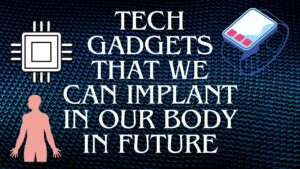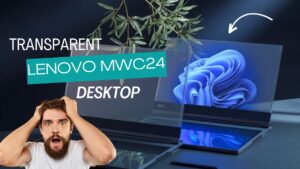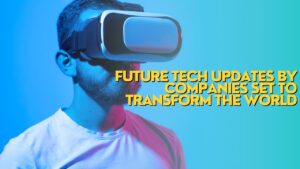Honda’s Hydrogen Fuel Vehicle , The automotive sector is currently facing a crucial moment due to the increasing need for eco-friendly transportation choices. Car manufacturers are striving to discover innovative solutions to reduce carbon emissions and minimize their environmental impact, in light of mounting fears about global warming.
- The Rise of Hydrogen Fuel Cell Technology
- Honda's Bold Initiative
- Overcoming Challenges
- The Road Ahead: Launch Date and Cost Estimation
- FAQ:
- Q: What makes Honda's hydrogen fuel cell vehicle unique compared to other electric vehicles?
- Q: When can consumers expect Honda's hydrogen fuel cell vehicle to hit the market?
- Q: What are the estimated costs associated with Honda's hydrogen fuel cell vehicle?
- Q: How does Honda plan to address challenges related to hydrogen refueling infrastructure?
- Q: What are some advantages of hydrogen fuel cell vehicles over battery-electric vehicles?
- Q: How does Honda's hydrogen fuel cell vehicle contribute to the company's sustainability goals?
- Embracing the Future of Transportation
In a groundbreaking move, Honda, one of Japan’s automotive giants, has announced its foray into hydrogen fuel cell technology. Honda is planning to introduce a hydrogen fuel cell vehicle that can be recharged, making them the first Japanese automaker to do so. This move could have a significant impact on the automotive industry and the future of transportation.
The Rise of Hydrogen Fuel Cell Technology
Hydrogen fuel cell technology is often seen as a viable substitute for regular engines and electric vehicles. Instead of using gasoline or diesel, these vehicles produce electricity by combining hydrogen and oxygen, resulting in only water vapor and heat being released. This emission-free operation makes hydrogen fuel cell vehicles a compelling solution for reducing greenhouse gas emissions and combating air pollution.
Although hydrogen fuel cell technology offers environmental advantages, its widespread use has been impeded by obstacles such as expensive production, insufficient refueling options, and worries about storing and distributing hydrogen. Consequently, the commercial success of hydrogen fuel cell vehicles has been limited, with only a few companies exploring this area.
Honda’s Bold Initiative
Against this backdrop, Honda’s decision to introduce a hydrogen fuel cell vehicle signals a significant breakthrough in the automotive industry. Honda plans to overcome obstacles to the acceptance of hydrogen fuel cell technology and promote the shift to sustainable transportation by merging its environmental advantages with the convenience of rechargeability.
This move by Honda highlights their dedication to innovation and protecting the environment, which aligns with their goal of creating a society that is not dependent on carbon emissions. Honda has a history of being a leader in fuel-efficient and alternative fuel vehicles, constantly pushing the limits of automotive engineering and embracing new technologies to promote advancement.
Advantages of Honda’s Hydrogen Fuel Cell Vehicle
Honda’s hydrogen fuel cell vehicle is a game-changer in the automotive industry, providing numerous benefits that surpass those of conventional combustion engines and electric vehicles. Here are some key benefits:
- Zero Emissions: Honda’s hydrogen fuel cell vehicle emits only water vapor, making it a clean and environmentally friendly transportation option. Zero-emission vehicles are seen as essential for sustainable transportation in light of increasing concerns about air quality and climate change.
- Longer Range:Honda’s hydrogen fuel cell vehicles have longer driving ranges than battery-electric vehicles, which is a major advantage for consumers who are worried about the limited range of electric vehicles. The use of hydrogen allows Honda’s vehicles to have impressive range capabilities, making them more attractive for long-distance travel.
- Fast Refueling: Hydrogen fuel cell vehicles can be refueled quickly, similar to conventional gasoline cars, unlike battery-electric vehicles which have long charging times. This quick refueling capability makes hydrogen fuel cell vehicles more practical and convenient for everyday use.
- Versatility: By designing a hydrogen fuel cell vehicle that can also be recharged, Honda offers consumers the flexibility to choose between hydrogen refueling and traditional charging options, depending on their preferences and needs. This versatility expands the appeal of the vehicle and helps address concerns about refueling infrastructure availability.
Overcoming Challenges
While Honda’s foray into hydrogen fuel cell technology holds immense promise, it is not without its challenges. One of the most significant hurdles is the need to establish a robust hydrogen infrastructure network to support widespread adoption. Unlike gasoline stations or electric charging stations, hydrogen refueling stations are still relatively scarce, limiting the practicality of hydrogen fuel cell vehicles in certain regions.
Additionally, there are concerns regarding the cost and efficiency of hydrogen production, as well as the environmental impact of large-scale hydrogen extraction and distribution. Addressing these challenges will require collaboration between automakers, government agencies, energy companies, and other stakeholders to invest in infrastructure development, research, and innovation.
Furthermore, consumer acceptance and awareness play a crucial role in the success of hydrogen fuel cell vehicles. Educating consumers about the benefits of hydrogen technology, dispelling misconceptions, and incentivizing adoption through subsidies and incentives will be essential in driving market demand and overcoming initial skepticism.

The Road Ahead: Launch Date and Cost Estimation
As Honda prepares to unveil its hydrogen fuel cell vehicle, anticipation mounts regarding its launch date and estimated cost. While specific details may vary, industry analysts speculate that Honda’s groundbreaking vehicle could hit the market within the next year, aiming for a launch date in late 2024 or early 2025. This ambitious timeline underscores Honda’s commitment to leading the charge in hydrogen fuel cell technology and delivering innovative solutions to consumers worldwide.
Projections indicate that the initial cost of Honda’s hydrogen fuel cell vehicle may be higher than that of conventional internal combustion engine vehicles. The final pricing structure will depend on a number of factors, including technological advancements, production scale, and material costs. However, experts predict that prices will gradually drop, making hydrogen fuel cell vehicles more affordable for a wider range of consumers, as production volumes increase and economies of scale take effect.
Although the exact cost is still unknown, experts in the industry believe that Honda’s hydrogen fuel cell car may be priced competitively compared to other high-end electric vehicles. The estimated starting price could range from $50,000 to $70,000 USD, indicating Honda’s dedication to providing advanced technology and performance at a reasonable and valuable price for consumers.
FAQ:
Q: What makes Honda’s hydrogen fuel cell vehicle unique compared to other electric vehicles?
A: Honda’s hydrogen fuel cell vehicle stands out for its ability to generate electricity through a chemical reaction between hydrogen and oxygen, emitting only water vapor as a byproduct. This emission-free operation offers a clean and environmentally friendly transportation solution, distinguishing it from traditional internal combustion engines and battery-electric vehicles.
Q: When can consumers expect Honda’s hydrogen fuel cell vehicle to hit the market?
A: Industry analysts speculate that Honda’s hydrogen fuel cell vehicle could launch as early as late 2024 or early 2025, though specific details are yet to be confirmed by the company. The anticipated launch date underscores Honda’s commitment to advancing sustainable mobility solutions and pioneering innovative technology in the automotive sector.
Q: What are the estimated costs associated with Honda’s hydrogen fuel cell vehicle?
A: While exact pricing details have not been disclosed, industry projections suggest that Honda’s hydrogen fuel cell vehicle may initially come with a premium price tag compared to traditional internal combustion engine vehicles. Estimated starting costs range from $50,000 to $70,000 USD, positioning the vehicle within the premium electric vehicle segment.
Q: What are some advantages of hydrogen fuel cell vehicles over battery-electric vehicles?
A: Hydrogen fuel cell vehicles offer several advantages over battery-electric vehicles, including longer driving ranges, fast refueling times, and zero-emission operation. With their ability to generate electricity on board, hydrogen fuel cell vehicles provide a compelling alternative for consumers seeking clean and efficient transportation options.
Q: How does Honda’s hydrogen fuel cell vehicle contribute to the company’s sustainability goals?
A: Honda’s hydrogen fuel cell vehicle aligns with the company’s broader vision of creating a carbon-neutral society by reducing greenhouse gas emissions and promoting sustainable mobility solutions. By investing in hydrogen fuel cell technology, Honda demonstrates its commitment to environmental stewardship and driving positive change in the automotive industry.
Embracing the Future of Transportation
Honda’s upcoming hydrogen fuel cell vehicle not only marks a new era in automotive innovation but also signifies a significant move towards a sustainable and eco-friendly future. By merging the zero-emission advantages of hydrogen fuel cell technology with the convenience of rechargeability, Honda aims to transform our perception of transportation. Consumers are excited for the release of Honda’s hydrogen fuel cell vehicle, marking a significant moment of change in the automotive industry. As the launch date approaches and costs are determined, there is growing anticipation for this groundbreaking advancement in sustainable transportation. As Honda gears up to reveal its vision for the future of transportation, the focus will be on creating a world where clean, efficient, and accessible transportation is a reality for future generations. Let’s join together in embracing innovation, sustainability, and progress as we work towards a brighter and more sustainable future.









